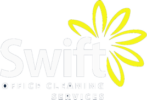We all work best in a comfortable environment. Temperature is a key part of that.
Complaints about air-conditioning and heating in offices are very common. Yet office humidity can affect our comfort just as much as temperature.
Humidity levels that are too high or too low don’t just affect morale and productivity.
They can actually make people ill. And if left untreated, they will eventually cause structural damage. Ensure that office managers and facilities staff recognise common humidity-related issues and know how to deal with them.
What’s the problem?
Humidity – the amount of moisture in the atmosphere – should be between 40% and 60%. Any higher and people will feel hot and sticky and have difficulty concentrating. Humid environments also promote the growth of mould and mildew, which can spread throughout a building.
If humidity levels are too low, on the other hand, people will experience dry skin and itchy eyes. Mucous membranes in the nose and throat will dry out, and as these play a key role in our natural defences against viruses and bacteria, you may notice staff getting sick more frequently.
Low humidity can also cause synthetic carpets to become charged with static electricity – increasing the potential for computer equipment failure.
What causes condensation?
Condensation is a key sign that your humidity is too high. It occurs when warm, humid air meets a colder surface and water droplets form. While it’s most visible on glass or metal, condensation will also form on other surfaces and if not addressed will soon cause staining or mould growth. Keep a look out for condensation or staining to spot areas where you have excessive moisture evaporation and inadequate ventilation.
Get the basics right
If you have a recurring problem, you will need to identify any structural issues which are allowing damp into your building. This could include leaking pipes, blocked gutters or faulty damp proof courses.
Good ventilation is key to preventing excess moisture. So make sure you have adequate systems in place, especially in damp-prone areas such as washrooms, basements and kitchens. Heating, cooling and ventilation systems must be well maintained and cleaned regularly, to avoid circulating mould spores and other pathogens around the building
Insulation is also important. If your building is not adequately insulated, you’re more likely to have cold surfaces inside, which will trigger condensation. There’s a wealth of detailed guidance for facilities managers available from the Health and Safety Executive and Chartered Institution of Building Services Engineers. CIBSE also offers some useful top tips on workplace temperature and thermal comfort.
Seek out sources of excess moisture
So there are no obvious structural problems, yet you still have a problem with humidity? You need to locate other sources of moisture in the office and deal with them. Are staff hanging wet coats and outdoor gear in the workspace? Consider introducing a cloakroom or set of pegs in a well-ventilated space.
Do staff make hot drinks and heat liquids without an extractor fan nearby? All hobs should have an extractor hood, and you should encourage good practices such as keeping lids on pans. Replace kettles with a hot water tap or dispenser, which is safer and more economical. This is also less likely to fill your kitchen area with steam. Office plants will collect excess moisture in the air – just be sure not to overwater them.
If low humidity is your issue
In today’s high-tech offices, dry air is just as likely to be a problem as damp. All our electronic equipment generates heat which causes humidity levels to reduce. Many offices find that cold, dry spells in winter can cause temporary problems with dryness.
Leading workplace health, safety and environmental compliance consultancy Assurity Consulting offer great advice on this matter. They advise that staff should be encouraged to drink more fluids, especially water, during periods when humidity is low.
They also recommend spraying carpets with water in the morning, before the staff start work. And if the problem is more localised, a small bowl of water could be placed next to a radiator: as the water evaporates it will help raise humidity.
Keep it clean
Regular and thorough cleaning and sanitising maintains a clean and hygienic environment and prevents damp and mould taking hold.
Swift Office Cleaning Services provide tailor-made office cleaning solutions to help your business maintain a healthy and clean working environment. Get in touch with our friendly, expert team for a free quotation in London: 02034058442 or Essex & Hertfordshire: 01279 413641.

